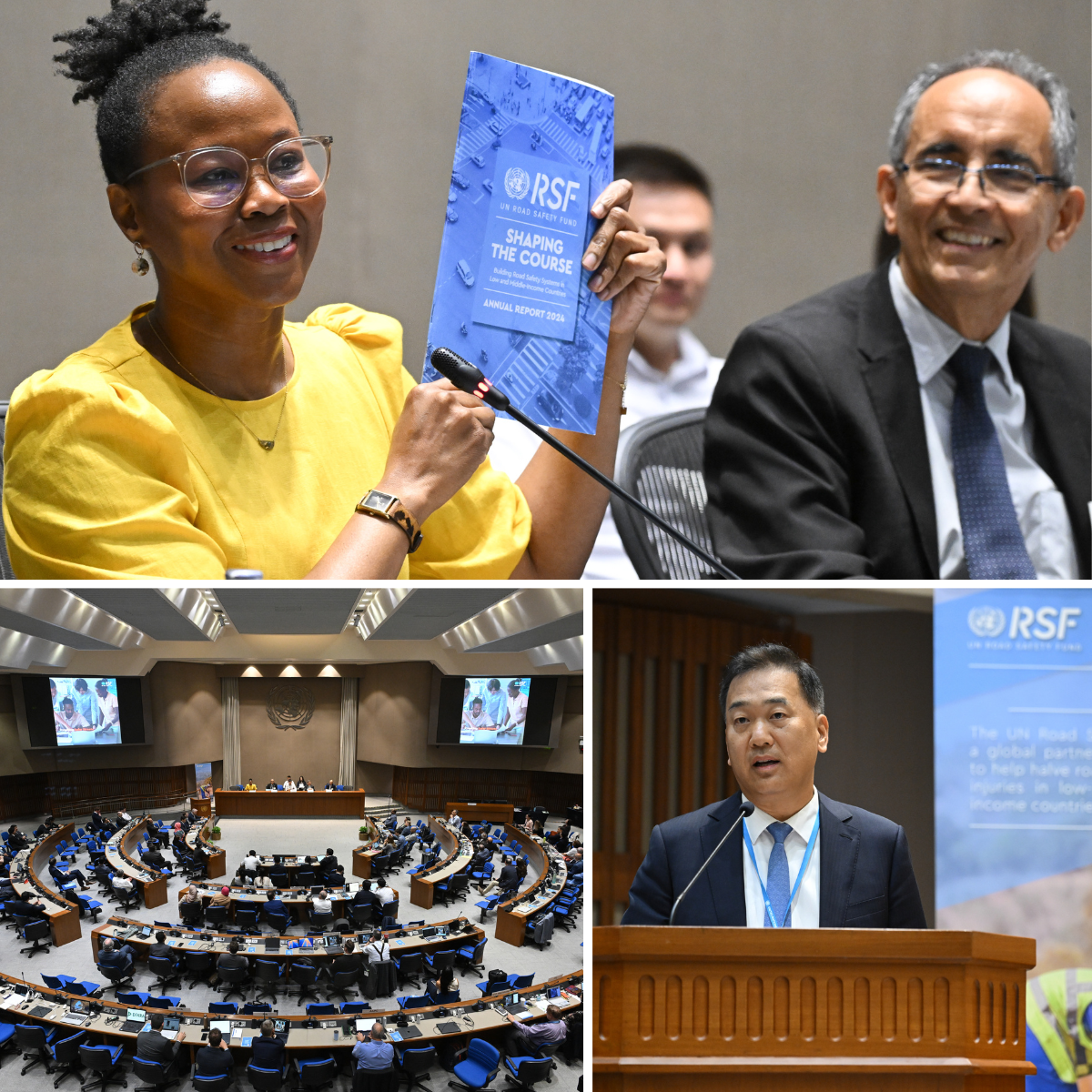
Bangkok, Thailand | 2 June 2025 – The United Nations Road Safety Fund (UNRSF) today launched its 2024 Annual Report at Asia-Pacific Road Safety Week in Bangkok, spotlighting how countries are taking action to narrow gaps in their national road safety systems to prevent road traffic deaths and injuries.
The report launch was part of a four-day regional gathering organised by UNESCAP, UNECE and the UNRSF, bringing together over 200 governments, civil society, and private sector actors from across 45 countries to discuss progress and best practices toward halving road traffic deaths by 2030, in line with SDG target 3.6.
Opening the launch, UNRSF Head Nneka Henry emphasised the decision to host the event in Bangkok as a deliberate shift to ground global commitments in the regions most affected by road traffic deaths and injuries. "This region is not only facing a major road safety challenge, but also demonstrating courageous leadership and innovation in responding to it," she said.
The launch featured high-level remarks by the UN Secretary-General’s Special Envoy for Road Safety, Jean Todt, who underscored both the achievements and the gaps that remain. “This year’s report tells a bittersweet story. We are seeing real progress, but the pace is still too slow. More than one million lives are lost on the roads every year. Without stronger laws, sustained investment, and shared responsibility, we risk losing momentum and more lives. Road safety is not a technical issue; it is a matter of dignity and justice.”
Now in its sixth year, the Fund has grown into a global partnership supporting 52 projects in 94 countries, implemented by 18 UN agencies. The 2024 report highlights tangigle system-level results in high-impact areas such as data collection, upgraded helmet standards, safer street design for walking and cycling, and speed management.
In Brazil, a unified crash data and enforcement system led to a 73% increase in traffic fines and a one-third reduction in deaths. In Rwanda, the establishment of Africa’s first UN-standard helmet testing lab is enabling the country to enforce safer helmet import regulations. In Colombia, local communities are redesigning 20 high-risk streets, while in Senegal, the national road safety agency is being trained to assess and upgrade the safety of the country's entire road infrastructure network.
The launch event included testimonials from key beneficiary countries and partners included Luiz Ottavio Miranda from Brazil’s Ministry of Health, Saalaev Nazarbek from the Ministry of Transport and Communications of Kyrgyzstan, Greg Smith, Acting CEO of the International Road Assessment Programme (iRAP), and Hideaki Takaishi, Executive Chief Engineer at Honda Motors.

Closing the event, Weimin Ren, Director of the Transport Division at UNESCAP and Chair of the UNRSF Steering Committee, called for moving beyond fragmented efforts. “To scale these solutions, we must close two critical gaps: the gap in financing and the gap in coordination,” he said. “Road safety is not a luxury, it is a right. And together, with greater ambition, alignment, and investment, we can make that right a reality.”
The report is available at: https://roadsafetyfund.un.org/resources/2024-annual-report

